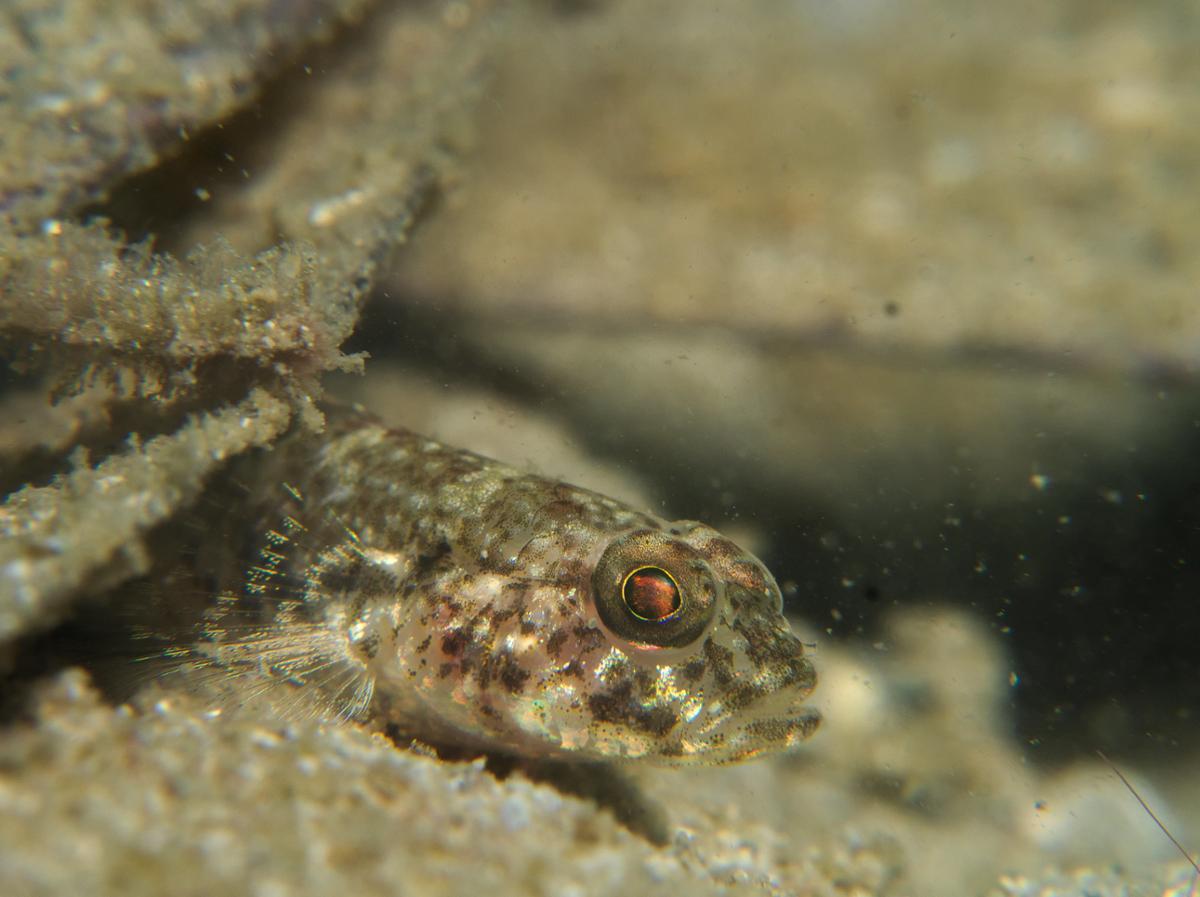D: Today we're looking at fish singles ads. Let's see: [RUSTLING PAPER] Single Fish Female Seeks Good Father to help with eggs.
Y: Come on, Don, be serious. Fish don't place ads in the paper. Plus, I thought a common assumption in biology is that reproductive behavior conflicts with parenting behavior, since the more energy an animal spends on parenting, the less energy it has to spend on courting and mating. So wouldn't the female fish be more likely to fall for a good wooer?
D: Actually, Yaël, scientists documented what is known as parental courtship behavior in the lab. That's when an animal shows off its parenting skills to attract a mate.
Y: Really?
D: Yep. University of Florida Researchers studied the sand goby, a small fish native to the European coast that is among the twenty percent of fish species that exhibit parenting behavior. Sand gobies nest under sea shells, and the males not only defend the nests, but also hollow them out. Then, once the eggs are laid, they use their pectoral fins to fan them, creating a current of oxygenated water that helps the eggs mature.
Y: Okay, but don't they also nibble on their eggs?
D: They do indeed. But here's the interesting thing. The scientists observed that when there were female sand gobies around, the males spent less time nibbling and more time fanning their eggs and working on their nests.
Y: Show offs.
D: This was especially true for sand gobies with larger nests, maybe because bigger nests provide room for additional mating.
Y: And do the female sand gobies fall for these fatherly types?
D: The research indicates that they do.










